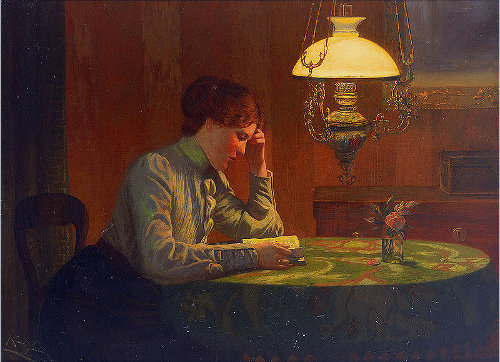
Suppose I switch on my reading lamp at time zero. After one minute I switch it off again. Then I switch it on after a further 30 seconds, off after 15 seconds, and so on.
James Thomson asks: “At the end of two minutes, is the lamp on or off? … It cannot be on, because I did not ever turn it on without at once turning it off. It cannot be off, because I did in the first place turn it on, and thereafter I never turned it off without at once turning it on.”
What is the answer? Would the final state be different if I had switched the lamp off at time zero, rather than on? What if I carry out the experiment twice in succession?
See The Before-Effect.
